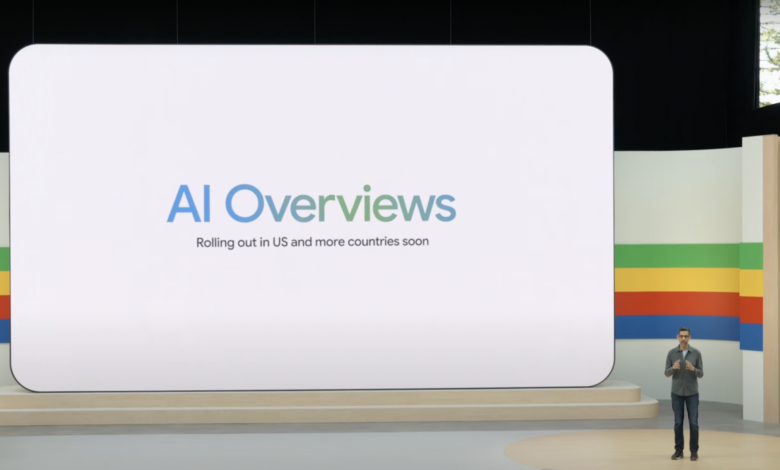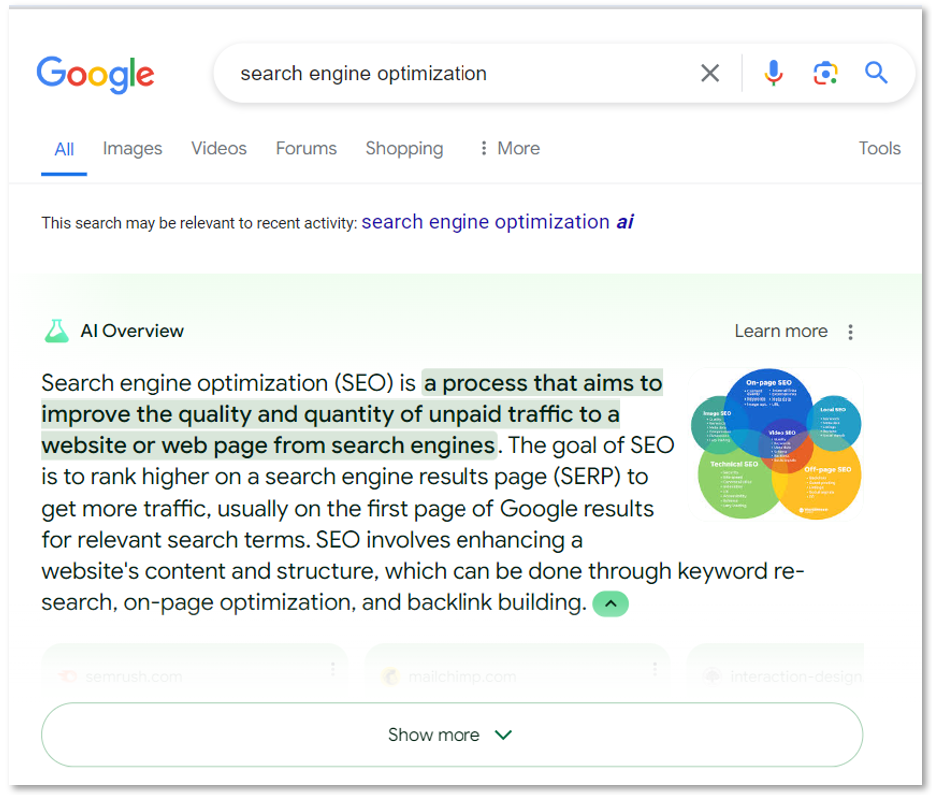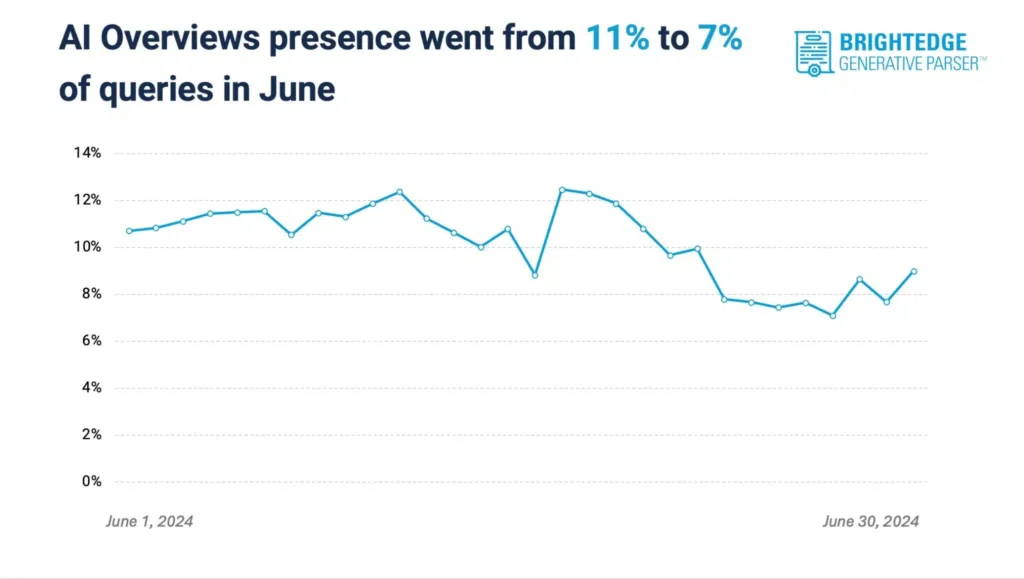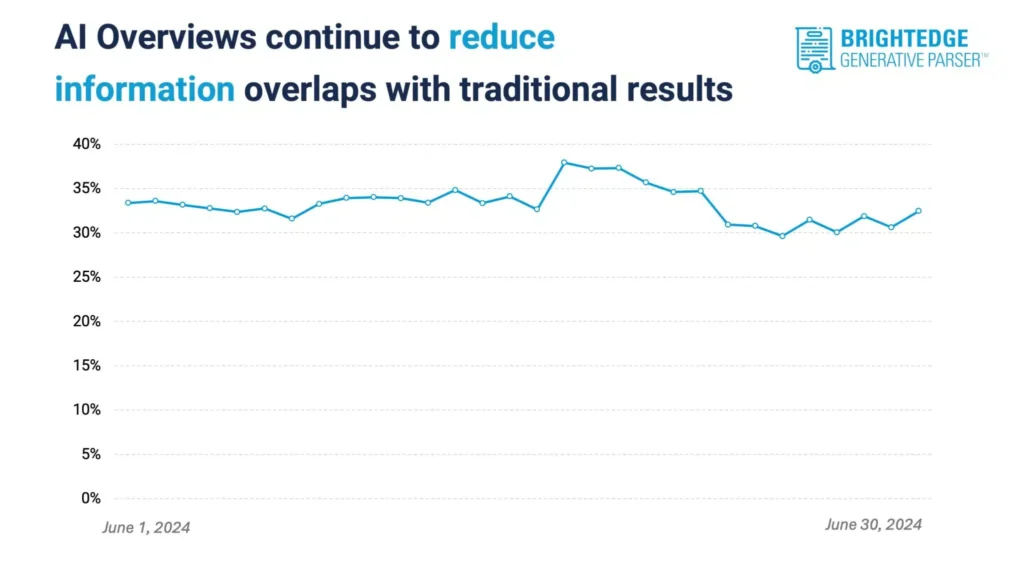The Rise and Fall of Google AI Overviews: A Journey from Innovation to Critique

In May 2024, Google unveiled its ambitious AI Overviews feature during the annual Google I/O conference. This innovation, part of the broader Search Generative Experience (SGE), promised to revolutionize how users interact with search results by providing AI-generated summaries at the top of search queries. However, the journey of AI Overviews has been a rollercoaster, marked by initial excitement, critical feedback from digital marketers and SEO experts, and a noticeable decline in its usage.
Google I/O 2024 Announcement
Google I/O 2024 was a landmark event, showcasing numerous advancements in AI and search technologies. Among these, AI Overviews stood out as a key highlight. Google aimed to enhance user experience by offering concise, AI-generated summaries for complex search queries. This feature was designed to help users quickly grasp the essence of their search results without having to sift through multiple links.
Sundar Pichai, CEO of Google, emphasized the potential of AI Overviews to transform search experiences:
“Our goal is to make information more accessible and useful by leveraging the power of AI to provide quick, accurate summaries.”


Initial Reactions from Digital Marketers and SEO Experts
The announcement of AI Overviews was met with a mix of enthusiasm and skepticism within the digital marketing and SEO communities. On one hand, the potential for improved user engagement and satisfaction was undeniable. On the other hand, concerns arose about the impact on organic search traffic and the visibility of traditional search results.
Digital marketers were particularly interested in how AI Overviews would affect click-through rates (CTR) and user behavior. SEO experts, meanwhile, debated the implications for search engine optimization strategies. Some feared that the prominence of AI-generated summaries might reduce the need for users to visit individual websites, potentially diminishing organic traffic.
John Mueller, a prominent figure in the SEO community and Google’s Search Advocate, expressed cautious optimism:
“AI Overviews could be a game-changer, but we need to ensure it complements rather than competes with organic search results.”
He addressed also some concerns:
“We are continuously working to improve the accuracy and transparency of Overviews to better serve our users and support content creators.“
Rand Fishkin, founder of SparkToro, has been particularly vocal, stating:
“Google Overviews threaten to monopolize traffic and ad revenue, diverting it away from content creators who rely on organic search results.”
Fishkin’s criticism highlights the tension between Google’s innovations and the financial realities faced by website owners and digital marketers.
The Quality of Search Results
As AI Overviews rolled out to a broader audience, user feedback began to pour in. Initially, many users appreciated the convenience of quick summaries, especially for complex queries. However, as time went on, issues with the quality and accuracy of these summaries became apparent. Some users reported that the AI-generated content occasionally missed critical nuances or provided overly simplistic answers. Incorrect and dangerous AI-generated answers, such as suggesting people drink urine and eat rocks, were reported, prompting Google to promise improvements.
Moreover, the reliance on AI to generate these summaries raised questions about the potential for bias and misinformation. Ensuring the accuracy and reliability of AI-generated content became a significant challenge for Google.
In response to feedback, Google made several updates to improve the quality of AI Overviews. These included refining the algorithms and incorporating more diverse data sources to enhance the accuracy and relevance of the summaries.
The Downfall: Declining Usage and Criticism

Despite the initial excitement, the visibility of AI Overviews in search results began to decline. Reports indicated that the feature’s presence dropped from 11% to just 7% of search queries in June. This reduction suggested that AI Overviews had not fully met its intended goals and that user satisfaction was not as high as anticipated.
Search Engine Land reported significant trends and statistics based on data from BrightEdge Generative Parser:
- The number of Google Search results without SGE jumped to 65% in mid-April, up from 25%.
- AI Overviews were only shown for 15% of queries after the rollout in the US, and now 7%
- The presence of AI Overviews remained stable in many industries, but specific sectors saw significant declines:
- Education queries: from 26% to 13%.
- Entertainment queries: from 14% to nearly zero.
- E-commerce queries: from 26% to 9%.
- AI Overviews now take up 13% less pixel space on top of Google’s search results, according to BrightEdge.
Critics pointed out that while the concept was innovative, the execution needed refinement. The AI’s ability to generate high-quality, contextually accurate summaries consistently was called into question. Additionally, the impact on organic search traffic remained a contentious issue, with some websites experiencing a noticeable drop in visitors.

Case Studies and Expert Opinions
A case study conducted by BrightEdge revealed that websites relying heavily on organic traffic experienced a significant drop in visitors after the introduction of AI Overviews. One e-commerce site reported a 15% decrease in organic traffic within the first month. Another publisher, a popular health blog, reported a 20% drop in organic traffic. The decline was attributed to users finding the AI-generated summaries sufficient, reducing the need to click through to the actual websites. Conversely, a tech news site saw a 15% increase in visibility, being frequently featured in Overviews due to their authoritative content.
Danielle Coffey, Chief Executive of the News/Media Alliance, expressed concerns about the impact of AI Overviews on news websites:
“The little traffic we get today will be further diminished, and with a dominant search engine that’s cementing its market power, we once again have to adhere to their terms.”
Kieran Flanagan, SVP of Marketing at HubSpot, highlighted the rushed implementation of AI Overviews:
“Google rushed to add AI to get ahead of growing competitors like Perplexity and OpenAI. This decision is only hurting Google’s reputation.”
Lessons Learned and Future Implications
The journey of Google Overviews from its announcement at Google I/O 2024 to its current state highlights the challenges of integrating AI into search technologies. While the feature showcased Google’s commitment to innovation, it also underscored the importance of balancing technological advancements with user needs and expectations.
Key lessons from the AI Overviews experience include the necessity of rigorous quality control, the importance of user feedback, and the need for seamless integration with existing SEO practices. These insights will undoubtedly shape future developments in AI and search technologies.
For digital marketers and SEO experts, the evolution of AI in search remains a critical area to watch. As AI continues to advance, staying informed and adaptable will be essential for leveraging these technologies effectively.
Future Predictions and Tips for Marketers
Looking ahead, Google might introduce more sophisticated AI models to improve accuracy and source credibility. Transparency measures, such as clearer attribution of sources, could also be implemented to address current criticisms.
- Focus on Quality: Ensure your content is authoritative, well-researched, and trustworthy to increase the chances of being featured in Overviews.
- Optimize for Snippets: Structure your content to answer questions directly, making it easier for Google’s AI to extract relevant information.
- Monitor Performance: Regularly track changes in traffic and engagement to understand how Overviews are impacting your site.

The rise and fall of Google Overviews sheds the light on the complexities of integrating AI into search technologies. While the feature had the potential to revolutionize search experiences, its journey highlights the importance of continuous improvement and alignment with user needs.
The lessons learned will guide the development of more refined and effective AI-driven search solutions. For now, the balance between innovation and user satisfaction remains a key focus for Google and the broader digital marketing community.





